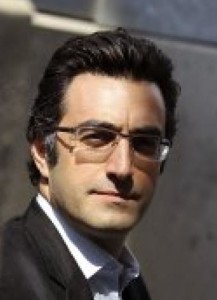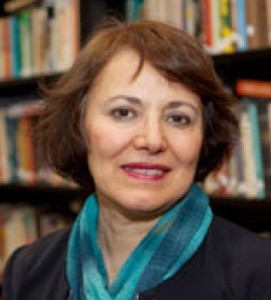July 22, 2016

Iranian-Canadian journalist Maziar Bahari says families should not clam up when their dual national relatives are detained in Iran, but rather shout out loudly.
Bahari was himself imprisoned in Iran. Family and friends made a lot of noise about his arrest in June 2009 and he was freed in four months, a comparatively brief period for a dual national to spend in jail in Iran.
But many families fear that making a public issue of a loved one’s imprisonment will make things worse for them.

Heaping pressure on the Iranian government is the only way to
secure freedom in cases like that of retired Concordia University professor Homa Hoodfar, Maziar Bahari told The Canadian Press last Tuesday.
“You need to publicize these cases as soon as possible and put pressure on the Iranian officials as soon as possible,” he said.
Bahari, who worked for Newsweek in Iran, said it is clear Hoodfar—and other jailed dual nationals—are being used as bargaining chips.
“Arresting dual national Iranians, especially those from the United Kingdom, the United States and Canada, can have different advantages for the Revolutionary Guard or those who arrest them,” he said. “These people can be treated as assets — they can be used as bargaining chips in Iran’s relations with other countries.”
Hoodfar is an anthro-pologist who traveled to Iran in February after the death of her American husband and her own retirement.
She was arrested in March but soon released on bail. She was rearrested in June and has been kept in Evin Prison ever since.
Bahari said there is a method to the regime’s actions. “What they [Iranian officials] are doing is teaching the general population a lesson and especially Iranians in the diaspora a lesson by making an example of these few dual national Iranians to scare the larger population,” he said.
Bahari said his interrogators told him as much when he was detained.
Bahari said the best option might be to apply pressure in advance of the United Nations annual General Assembly session, which starts late in September. President Rohani and a large delegation are expected to attend.
Hoodfar’s detention should be raised with as many Iranian officials as possible by everyone: friends, family, business leaders with ties to Iran, Canadian MPs of all parties, and Prime Minister Justin Trudeau, Bahari said.
“Meanwhile, it’s the families of these prisoners that are going through this horrible time which is really, really awful,” he said. “It’s really sad to see a regime do that to its own people, to devalue its own people to assets rather than [treat them] as human beings.”
University of Ottawa Professor Thomas Juneau disagreed with Bahari on the certain utility of publicity.
He told the Canadian Broadcasting Corporation (CBC) that too much public attention could make it harder to get prisoners released in a country like Iran. He said hardliners could begin to feel that if they release the prisoners, it will be seen as bowing to pressure from the West.
He noted that foreigners, and especially dual nationals, are detained in Iran on a regular basis, sometimes for a year or two. While they usually go free, he said, it’s never entirely clear why they were detained or what negotiations led to their release, making it difficult to draw lessons from these cases.
Following up on Hoodfar’s case, CBC asked Global Affairs Canada—the new name recently given the Foreign Affairs Ministry—how many—Canadians are being detained in Iran. It refused to say.
Spokesman Austin Jean said, “For privacy reasons, we cannot share this information.”
Alex Neve, secretary general of Amnesty International Canada, disputed the government’s logic. “We wouldn’t agree that giving numbers and statistics as to how many cases are being tracked and are of concern to Canada should be a privacy consideration,” he said.
The Iran Times is only aware of one Canadian citizen being detained right now, Hoodfar. But sculptor Parviz Tanavoli, who once lived in Canada and still holds Canadian citizenship, was briefly arrested last month. In addition, a permanent resident of Canada, Saeed Malekpour, has been imprisoned since 2008. He was facing a death sentence, but that sentence has since been commuted to life in prison.
